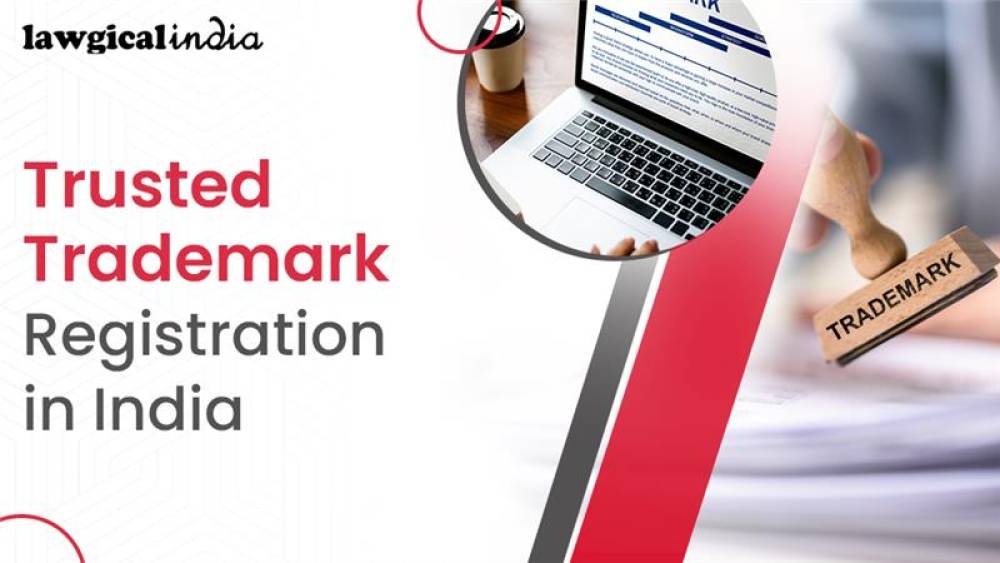What's the Difference?
Understanding the distinction between brand registration and trademark registration is essential for protecting your intellectual property. Despite the frequent interchangeability of the two phrases, each has a unique meaning and legal significance.
Let us delve into the difference between brand and trademark and explore the process of brand registration and trademark registration in India.
Difference Between Brand and Trademark:
While brand and trademark are related concepts, they have different scopes and applications. A brand encompasses a business's overall perception, image, and reputation, including its name, logo, colours, tagline, and other distinctive elements. Contrarily, a trademark is a legally recognized symbol, sign, or design that identifies and sets one company's products or services apart from those of rivals.
Brand Registration in India:
Brand registration in India involves the legal process of securing exclusive rights over a brand name or logo. However, it is essential to note that brand registration does not confer automatic legal protection against unauthorized use by others. It is primarily an administrative step to establish ownership and to demonstrate prior usage in case of disputes. While brand registration is not mandatory in India, it is advisable to register your brand to strengthen your legal position and establish evidence of ownership.
Trademark Your Brand:
Trademark registration, on the other hand, provides comprehensive legal protection for your brand's name, logo, or other distinctive elements. It grants exclusive rights to use and protect your trademark, preventing others from using a similar mark that may confuse consumers. Trademark registration offers more robust legal protection and the ability to enforce your rights against infringement or unauthorized use.
Brand Name Registration in India:
Brand name registration in India can be done through vcarious methods, including registering as a company, obtaining a domain name, or applying for trademark registration. While each technique offers some protection, trademark registration provides the most substantial legal safeguard for your brand name, logo, or other distinctive elements.
Trademark Name and Registration in India:
The Indian Trade Marks Act controls the registration of the Trademarks Act 1999. It involves filing an application with the Trademark Registry and undergoing a thorough examination. Once approved, the trademark is published in the Trademark Journal, allowing third parties to oppose the registration. If no opposition is raised, the trademark registration certificate is issued, granting exclusive rights to the trademark owner.
Safeguarding Your Intellectual Property
Why Brand Name Protection Matters: Your brand name is the cornerstone of your business identity. It represents your reputation, distinguishes you from competitors, and holds significant value in the minds of consumers. Therefore, failing to protect your brand name can result in various detrimental consequences, including:
- Reputation Damage: Unauthorized use of your brand name by others can lead to confusion among consumers, tarnish your reputation, and dilute the unique qualities associated with your brand.
- Lost Business Opportunities: If your brand name is not adequately protected, competitors may take advantage of your goodwill and reputation, potentially diverting customers and eroding your market share.
- Legal Disputes and Costs: Infringement on your brand name may result in costly legal battles to enforce your rights, defend against claims, or reclaim your brand's integrity. Failure to protect your brand name could weaken your legal position in such disputes.
Strategies for Brand Name Protection:
- Trademark Registration: One of the most efficient methods to ensure legal protection for your brand is registering its name as a trademark. A registered trademark grants exclusive rights to use the brand name and provides legal remedies against infringement. Consult with intellectual property professionals to guide you through the trademark registration process.
- Conduct Comprehensive Searches: Before finalizing your brand name, conduct thorough searches to ensure it is not already in use or infringing on existing trademarks. Search relevant databases, including trademark registries, domain name databases, and online platforms, to minimize the risk of conflicts.
- Monitor for Infringement: Regularly monitor the market, online platforms, and social media channels for potential unauthorized use or misuse of your brand name. Establish monitoring systems or work with professional monitoring services to identify and address infringements promptly.
- Enforce Your Rights: If you discover unauthorized use of your brand name, take immediate action to enforce your rights. Consult with legal professionals experienced in intellectual property law to devise an appropriate strategy, which may involve cease-and-desist letters, negotiations, or legal proceedings if necessary.
- Maintain Documentation: Keep detailed records of brand development, including creation dates, usage evidence, marketing materials, and any related documents. If disputes or legal issues arise, these records can serve as crucial evidence of your ownership and prior usage.
There are numerous crucial aspects to consider regarding safeguarding a brand name. However, here are a few critical points to keep in mind:
- Conduct thorough research: Before finalizing your brand name, conduct comprehensive searches to ensure it is not already in use or infringing on existing trademarks. Check trademark registries, domain name databases, social media platforms, and online search engines to minimize the risk of conflicts.
- Secure trademark registration: Register your brand name as a trademark to gain legal protection and exclusive rights to use it. Consult with intellectual property professionals to guide you through the trademark registration process and ensure compliance with relevant laws and regulations.
- Monitor for unauthorized use: Regularly monitor the market, online platforms, and social media channels for any unauthorized use or misuse of your brand name. Establish monitoring systems or work with professional services to identify potential infringements promptly.
- Enforce your rights: If you discover unauthorized use or infringement of your brand name, take swift action to enforce your rights. Consult with legal professionals to devise an appropriate strategy, which may involve sending cease-and-desist letters, negotiating settlements, or initiating legal proceedings if necessary.
- Maintain proper documentation: Keep detailed records of your brand development, including creation dates, usage evidence, marketing materials, and any related documents. These records can serve as valuable evidence of your ownership and prior usage in case of disputes or legal issues.
- Stay vigilant: Brand name protection is an ongoing process. To protect your brand's legal ownership, it is essential to monitor the market vigilantly, regularly examine trademark registries, and stay informed of any changes or developments in intellectual property legislation.
- Seek professional assistance: Intellectual property laws can be complex, and brand name protection requires specialized knowledge. Consider working with reputable legal service providers, such as Lawgical India, who can provide expert guidance and support in navigating the intricacies of brand name protection and trademark registration.
- Educate your team: Ensure that your employees and stakeholders know the importance of brand name protection and understand the guidelines for using and safeguarding your brand name. Establish internal policies and procedures to maintain consistency and reinforce the value of brand protection within your organization.
Conclusion:
In summary, brand registration and trademark registration are distinct legal processes with different scopes and implications. Brand registration establishes ownership and prior usage, while trademark registration offers comprehensive legal protection against unauthorized use. While brand registration is not mandatory, it is advisable to consider trademark registration to safeguard your brand and prevent infringement. Lawgical India is a reputable service provider specializing in brand and trademark registration, offering expertise and guidance to businesses seeking to protect their intellectual property. Consulting with legal professionals is crucial to ensure proper brand and trademark protection. By understanding the difference between brand and trademark and seeking appropriate registration, businesses can safeguard their valuable assets and establish a strong presence in the market.
FAQs
1. What is the difference between a brand and a trademark?
A brand represents the overall perception and identity of a business—this includes its name, logo, design, reputation, and emotional impact. A trademark, on the other hand, is a legal protection granted to specific brand elements (like the name, logo, or tagline) that distinguishes a company’s goods or services from others.
2. Is brand registration the same as trademark registration?
No. Brand registration (like registering a business name or domain) helps establish ownership and usage, but it does not provide legal protection against infringement. Trademark registration gives you exclusive legal rights to use your brand and take legal action if others misuse it.
3. Is brand registration mandatory in India?
Brand registration is not mandatory, but it is highly recommended to document ownership and prior use. However, only trademark registration offers full legal protection and enforceability under the law.
4. What are the benefits of registering a trademark in India?
Trademark registration:
Grants exclusive rights over brand elements
Protects against misuse or imitation
Enhances business reputation and brand value
Enables legal action in case of infringement
Can be licensed or sold as an asset
5. Can I register a brand name without a logo?
Yes. You can file a trademark application for just a wordmark (brand name) or logo, or both together. Each has different implications for how the brand is protected.
6. How do I know if my brand name is already taken?
Conduct a comprehensive trademark search using official IP India databases, domain name databases, and a general internet search. Lawgical India can assist with an in-depth search to ensure uniqueness.
7. Can someone else trademark my brand name if I haven’t?
Yes, if you haven't registered your brand name as a trademark, someone else can file a trademark for it—potentially blocking your usage or creating legal disputes.
8. What should I do if someone is using my brand name?
If your brand name is trademarked, you can take legal action—starting with a cease-and-desist letter. If not, you may still have rights based on prior use, but your legal position will be weaker. Always consult with IP professionals for the best course of action.
9. How long does a trademark last?
In India, a registered trademark is valid for 10 years and can be renewed indefinitely every 10 years.
10. Why choose Lawgical India for trademark registration?
Lawgical India offers:
End-to-end guidance from search to certification
Affordable legal services and expert advice
Custom solutions tailored to your business and brand class
Monitoring and objection-handling support
Transparent and timely updates on your application status











No comments yet. Be the first to comment!